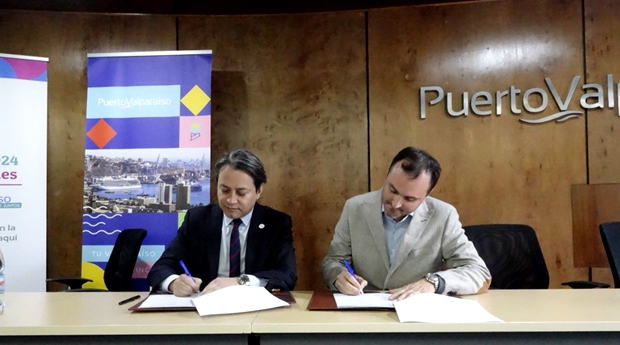Shanghai Lin-gang Special Area expands maritime cooperation with ports in New Zealand, Chile

[Photo/eastday.com]
The Lin-gang Special Area of China (Shanghai) Pilot Free Trade Zone has recently signed cooperation memorandums with the ports of Auckland in New Zealand and Valparaiso in Chile to deepen practical cooperation in maritime trade.
The agreements aim to establish Green Shipping Corridors and Digital Shipping Corridors, explore the development and utilization of clean energy sources such as green methanol, ammonia, and hydrogen, and construct low-carbon port areas to enhance the use of clean energy in ports.
Additionally, the collaboration seeks to develop and implement digital shipping solutions, focusing on the digitization of maritime trade scenarios and the cross-border flow of shipping data to improve transportation efficiency and safety.
Auckland Port, home to New Zealand's largest container terminal, is the country's primary import gateway, with renowned products such as Zespri kiwifruit exported to China through this port. Valparaíso Port is one of Chile's largest ports, handling over half of Chile's foreign trade imports, with major exports including copper and fruits, including the widely beloved Chilean cherries, destined for China.
According to officials from the Comprehensive Security Department of the Lin-gang Special Area Management Committee, New Zealand and Chile participate in the construction of the Belt and Road Initiative and are founding members of the Digital Economy Partnership Agreement. The daily connections and frequent maritime trade between the Lin-gang Special Area and the two international ports provide unparalleled scene advantages in pioneering the promotion of digitalization and green low-carbon transformation in maritime trade.
On April 12, at the signing ceremony with Valparaíso Port, Greenex, a well-known local agricultural product exporter in Chile, completed the first electronic bill of lading issuance and digital identity authentication based on the IQAX blockchain. Greenex is a major producer and exporter of Chilean cherries, plums, and peaches, with 76 percent of its products exported to China.
Traditional paper bills of lading are crucial property rights certificates in international shipping, and issues such as low delivery efficiency and unclear bill of lading endorsements often hinder the normal conduct of trade activities. Electronic bills of lading can directly save approximately $6 billion in costs for all stakeholders annually, with an overall impact on the maritime trade ecosystem estimated at $50 billion, according to estimates by industry insiders.
"The Lin-gang Special Area will continue to leverage its institutional innovation advantages and deepen international practical exchanges and cooperation to solidly expand the application of digital scenarios in maritime trade, " said the person in charge of the Comprehensive Security Department of the Lin-gang Special Area Management Committee.
Source: eastday.com

